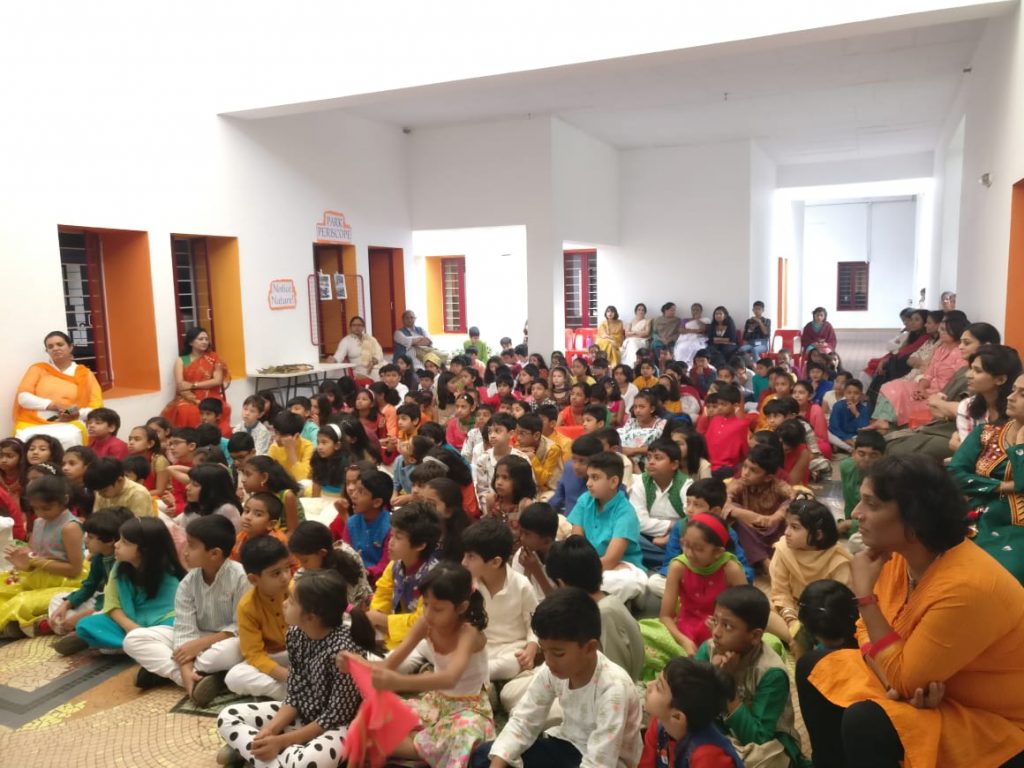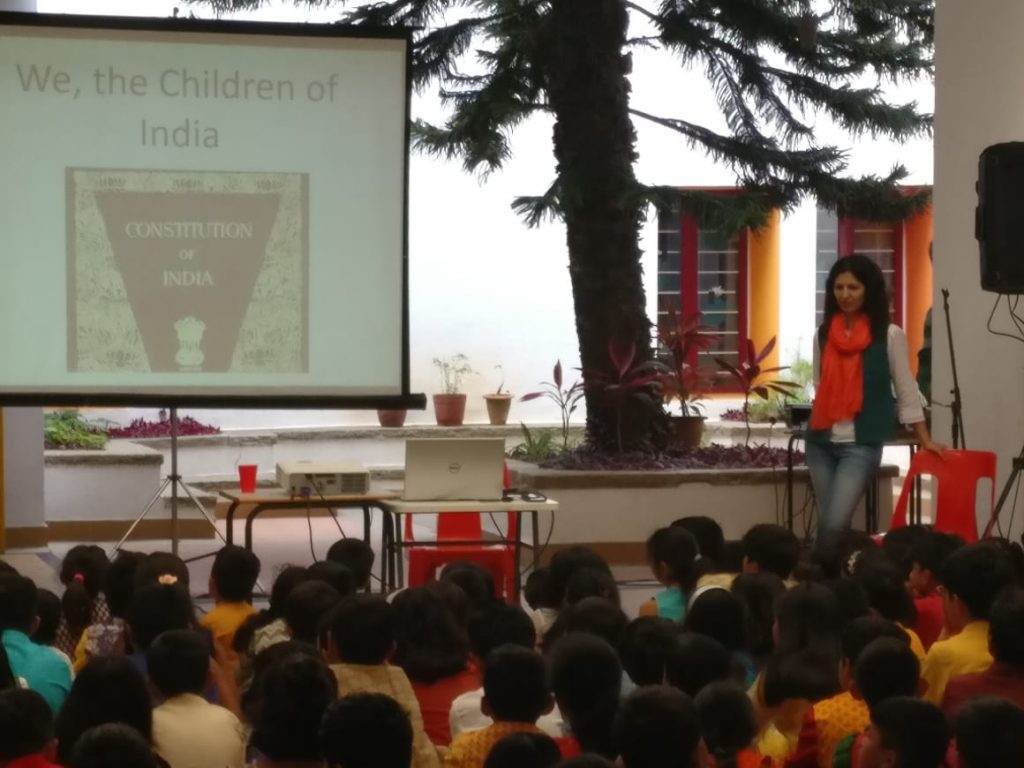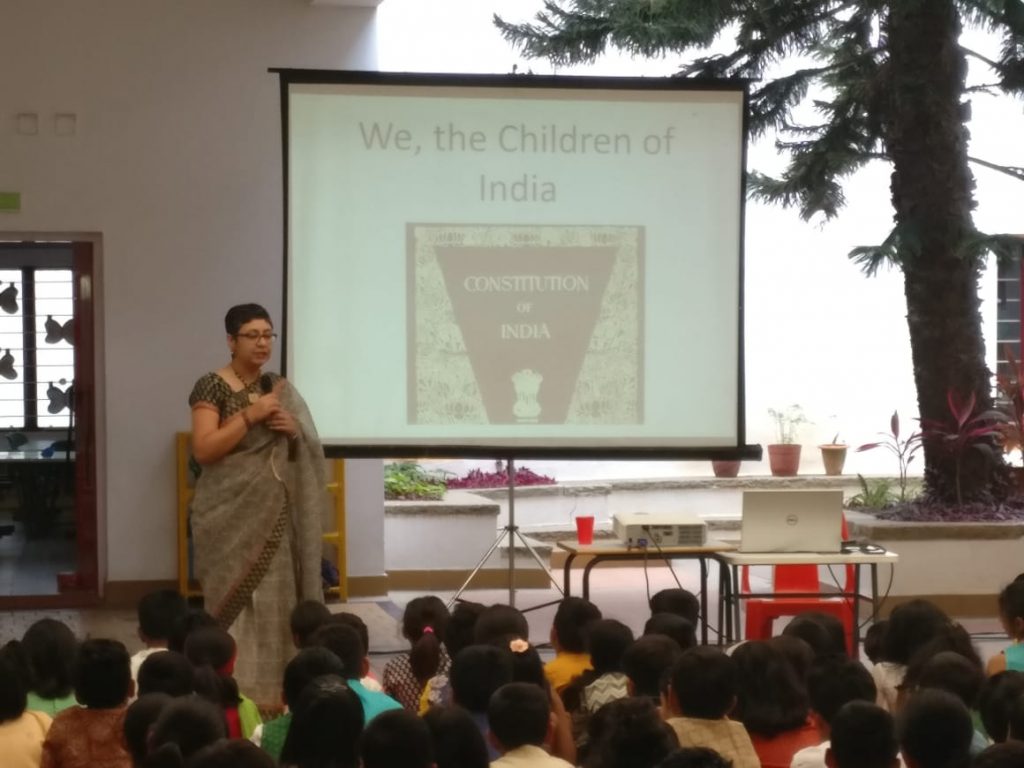(Written by Nikhita Thomas, National Constitution Society Member)
On the occasion of the 70th Republic Day celebrations, elementary school students at Mallya Aditi International School gathered together for a session on the Indian Constitution by Jayna Kothari, Senior Advocate in the Karnataka High Court, and Priya Rao, a lawyer turned academician.

After the ceremonial flag hoisting, students dressed in traditional attire sat down to what Kothari called a discussion by “We, the children of India” about their Constitution.
Students required no formal introduction to the Constitution as they enthusiastically interacted with Kothari regarding what they thought was a Republic and a Democracy. One first grader even quipped with a response that garnered applause from an impressed crowd, “A Republic means that we have our own rules. Before we were a monarchy, we had to obey the king. Now we’re a democracy and we can elect our own Prime Minister.”
Kothari explained that the Constitution was a book that had rules explaining how our country and its government should run. She spoke about the Constituent Assembly Members, the group of 299 representatives from all over India who framed our Constitution, also pointing out why it was necessary to consider the ideas and opinions of such a large group of people while writing something as important as the Constitution.

The conversation then shifted to the Father of the Constitution with students remarking how they had seen Dr. B. R. Ambedkar’s statue outside Vidhana Soudha. Ambedkar’s life long strife against the caste system was also discussed as several hands went up, opposing discrimination of any kind.
Kothari then asked the students if they knew any women who were part of the Constituent Assembly. While many were quick to identify Sarojini Naidu in a photograph shown to them, the students were doubtful about other women contributors. Kothari threw light upon how it was important to acknowledge the women members of the Constituent Assembly and tasked the students to read up on them.
Additionally, the talk covered the Fundamental Rights of every Indian citizen focusing on several important articles in the Constitution. Article 14 assuring every citizen equality, was discussed in relation to not only treating everyone the same but also making provisions for the differently abled. Article 15 prohibiting discrimination against Indian citizens on the basis of race, religion, sex, place of birth or any of them was discussed with a brief exchange about the Section 377 judgment. The students were also introduced to the transgender activist Akkai Padmashali, who was one of the petitioners against Section 377.
Article 19 about the freedom to assemble and/or protest for a cause and Article 21 (protection of life and personal liberty) was discussed, so was the Hadiya case (Article 25). What brought forth greater response though was the Sabarimala controversy, discussed in reference to the right to freedom of religion. Students, even the younger ones, were quick to catch that gender equality was at the heart of the issue.
Kothari also discussed with them their rights against exploitation (Article 22, Article 23) as well as their rights to constitutional remedies (Article 32).
One young animal lover inquired about the rights of animals and forests, which steered the conversation to Fundamental Duties. Priya Rao spoke in length about how it was not enough to simply enjoy our rights but to strive to be a good citizen by performing our duties as well.

The session ended with a question and answer session. The students will surely continue their discussion in their classrooms and beyond.
